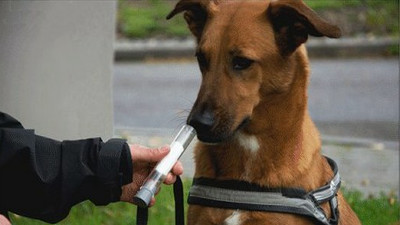Google's AI can detect metastatic breast cancer with 99% accuracy

Cancer that causes many fatalities every year can cause the phenomenon of metastasis that migrates through the body through the circulatory system and lymphatic system and forms a new tumor at another location in the body. Generally, it is known that it is difficult to detect metastatic cancers , but AI developed by Google was announced that "we can detect metastatic breast cancer with 99% accuracy".
Artificial Intelligence-Based Breast Cancer Nodal Metastasis Detection | Archives of Pathology & Laboratory Medicine
http://www.archivesofpathology.org/doi/10.5858/arpa.2018-0147-OA
Google AI claims 99% accuracy in metastatic breast cancer detection - VentureBeat
https://venturebeat.com/2018/10/12/google-ai-claims-99-accuracy-in-metastatic-breast-cancer-detection/
Breast cancer is a cancer that many women develop at one time in their life, and 500,000 people die worldwide every year by breast cancer. In a study conducted for breast cancer patients at a health center in Boston in 2009, one in four of breast cancer patients has been found to have experienced mistakes in the care stage, such as inadequate testing and diagnosis I will. It is said that 90% of the death causes of breast cancer patients are the result of cancer metastasis, but detection of metastatic cancer is a very difficult task, sometimes overlooked by veteran doctors.
About such metastatic breast cancer, Google's AI department and AI researcher at the San Diego Naval Medical Center announced that it has developed a new cancer detection algorithm to automatically detect the transition to breast cancer lymph nodes. This AI system, named "lymph node assistant" or "LYNA", was published in a medical journal called The American Journal of Surgical Pathology .
Even a skilled pathologist said there is a limit to the accuracy of detecting metastatic breast cancer. In a study published in 2017, it is clear that the result that even a veteran pathologist misses 62% of minute cancer metastasis under limited time constraints. "The AI algorithm can evaluate all the tissue patches on the slide used for cancer detection," the research team says, and LYNA has a framework similar to that when training pathologists I applied it and learned it.

by NASA Goddard Space Flight Center
LYNA is based on the open source image recognition deep learning model " Inception - v 3" and looks for cancer at the pixel level from the input image. In the process of training LYNA, the research team succeeded in raising the efficiency of training by setting the label of the tissue patch used for training to benign: tumor = 4: 1.
As a result, LYNA was able to achieve an accuracy of 99.3% in actuality by measuring the evaluation set used for measuring diagnostic accuracy of metastatic breast cancer. Although it is a slight misidentification case, it is said to have demonstrated superior metastatic breast cancer detection capability than human pathologist without being adversely affected by malfunction of diagnostic slide such as bubble, bleeding, and excessive staining.
The research team says, "LYNA has the ability to detect metastatic breast cancer higher than the pathologist, and by supporting the diagnosis of a pathologist, it can be used to improve the efficiency of diagnostic work and reduce mistakes," I am feeling a response to the new metastatic breast cancer detection AI.

Related Posts:
in Science, Posted by log1h_ik







